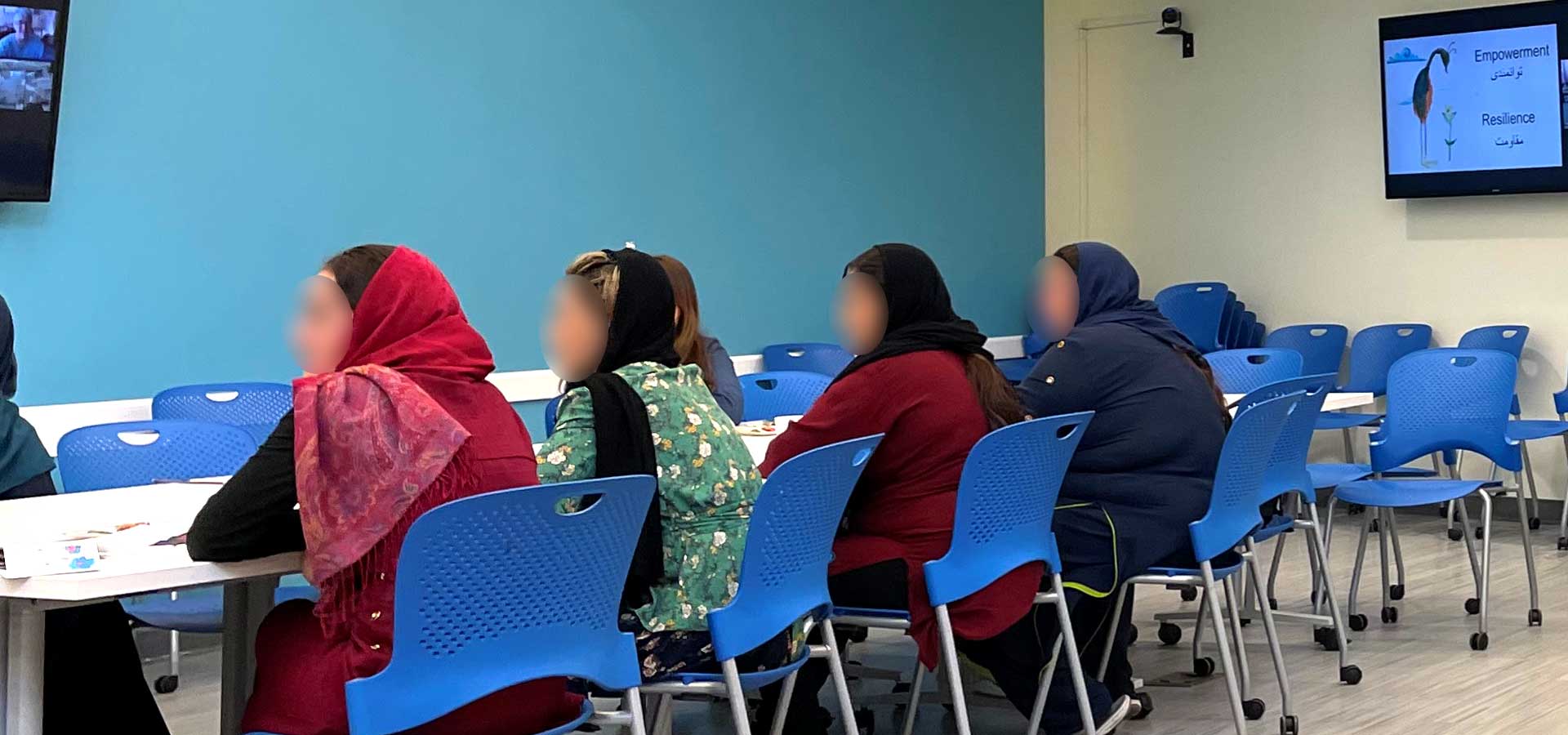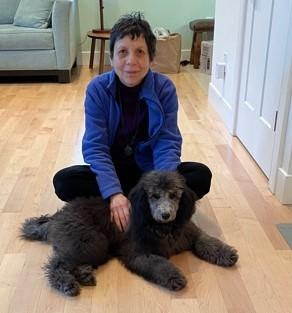

Last August, when the United States withdrew from Afghanistan, tens of thousands of refugees started to arrive in the US, and many came to western Massachusetts. … which is where Melinda Darer now lives. Melinda has had a lifelong interest – personal and professional – in supporting people in need, around the world. Her family as she was growing up hosted a young French man, she sponsored and welcomed into her family a Bosnian high school girl in the turbulent mid-1990’s in Yugoslavia, and through co-founding and co-directing Focusing Initiatives International has created and worked on dozens of community wellness projects.
As the numbers of refugees in her area increased, she heard that Catholic Charities has a refugee resettlement program. She reached out to them and spoke with the local coordinator about volunteering for incoming Afghan evacuees. The first step was for Melinda to organize an initial informational meeting. Subsequently she offered to lead a Circle of Care, and assembled a volunteer team of ten people.
Soon after that, Catholic Charities “assigned” the Circle a family: the father, 25, the mother 19, and a two-year old. They had been taken to a military base in the US, and then in early October flew to the airport nearest to Western Massachusetts. The circle team met them, got them settled in housing (temporary at first, now a bit more permanent), provided transportation to appointments, and worked to help and support their acclimation to this country.
Two months later, Catholic Charities offered an on-line seminar to Circle leaders and others about the Afghan culture, typical problems encountered after immigrating, and possible approaches to helping. Melinda attended and followed up with one of the panel members: Javid Mussawy – an Afghan she felt connected with due to his understanding and approach to the wide range of support needed. He is a Ph.D. candidate at the Center for International Education, UMass Amherst, who has studied and published about cultural and academic areas in Afghanistan, and has had University leadership positions.
She explained the work of Focusing Initiatives international and Pat Omidian in particular, since her dissertation was on Afghan refugees and she lived in Afghanistan for many years. Subsequently Javid and Melinda organized a meeting with Pat and Ian Barron, Executive Director of the Center for International Education at UMass. Ian’s interests include refugee child and adult trauma, especially in the context of war, migration and related situations. After meeting weekly for several months, Melinda invited Kathryn Buckley-Brawner, Executive Director of Catholic Charities of Springfield to join in the planning.
The group as now assembled – Focusing Initiatives, the Center for International Education, and Catholic Charities – share many important interests and missions including: social justice, thoughtful and ethical intercultural communications, especially among those marginalized and/or affected by war, disruption, and other emergencies.
Melinda asked Kathryn what support we could provide to the women. She said that while practical issues like the families’ housing, food, transportation, and health care were being handled, emotional support – especially for the women – was not being addressed. And this was just as, if not more, important, than the practical. If ignored, it leads to mental and even physical symptoms related to stress, anxiety and depression. The Afghan women are typically isolated, home all day, while their husbands work. But if the wives are well, then the husbands and families are well.
We brainstormed and decided to look at this larger picture of wellness for the women, and find ways to support these women emotionally as they struggle with all the issues of family, children and of course the United States culture.
We structured a pilot program for them to gather and talk in a safe place. Catholic Charities would handle the logistics such as spreading the word and transportation. The UMass team Identified three female Afghan students who could lead the sessions. That would ensure a safe, culturally comfortable, open environment.
At first, thirteen local Afghan women attended, sharing fruitful conversations. However, the numbers then went down; it was during Ramadan and many had less energy to attend due to fasting, and also spending more time cooking larger, special evening meals. Beforehand we did consider that it was Ramadan but decided to launch the pilot sooner, rather than wait until after Ramadan. And still, at least a half dozen women kept participating.
The final gathering included tea and refreshments, and facilitated discussion of a ‘look back’ on how it went, and ideas about where to go from there. The feedback was positive, and they wanted to continue, even adding more structure.
To be sustainable, and community-based, we decided to offer a two-prong approach for each meeting.
This effort has aligned with Focusing Initiative’s work: we come with no solutions or assumptions, honor cultural norms, encourage community-based approach, bring and model deep listening and meaningful conversations.
For decades, Melinda has organized and developed programs around the world; now, this enabled her to learn first-hand of the typical issues and challenges. When she wrote that initial email asking how she could help an Afghan family she never envisioned it would lead to a program networking with other organizations to provide a safe place and emotional support for the Afghan women in her own backyard.

About Us
Copyright 2026 Focusing Initiatives International. All rights reserved.
| Privacy Policy, how we process your personal data.
WordPress website developer: Holy Cow Online Marketing